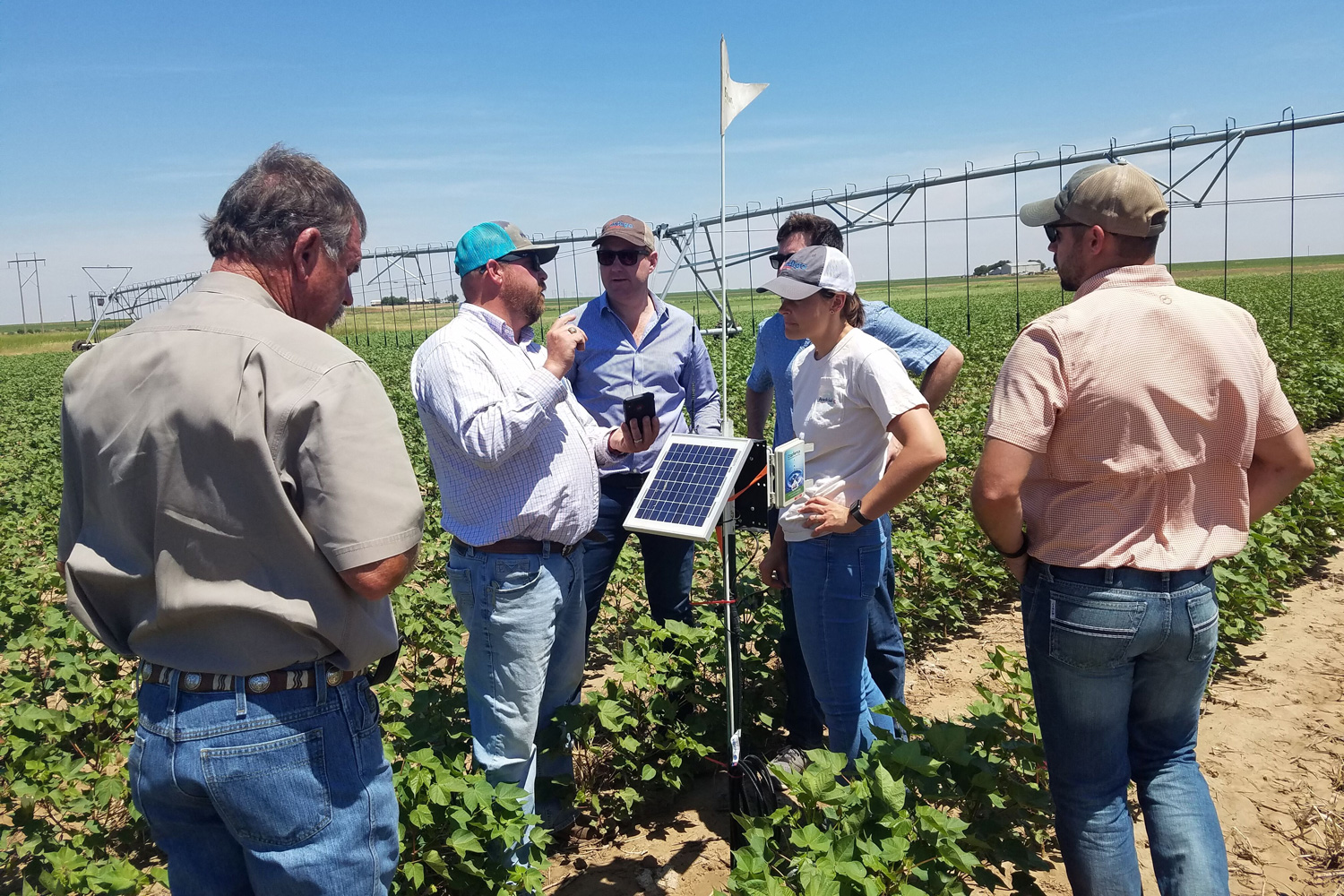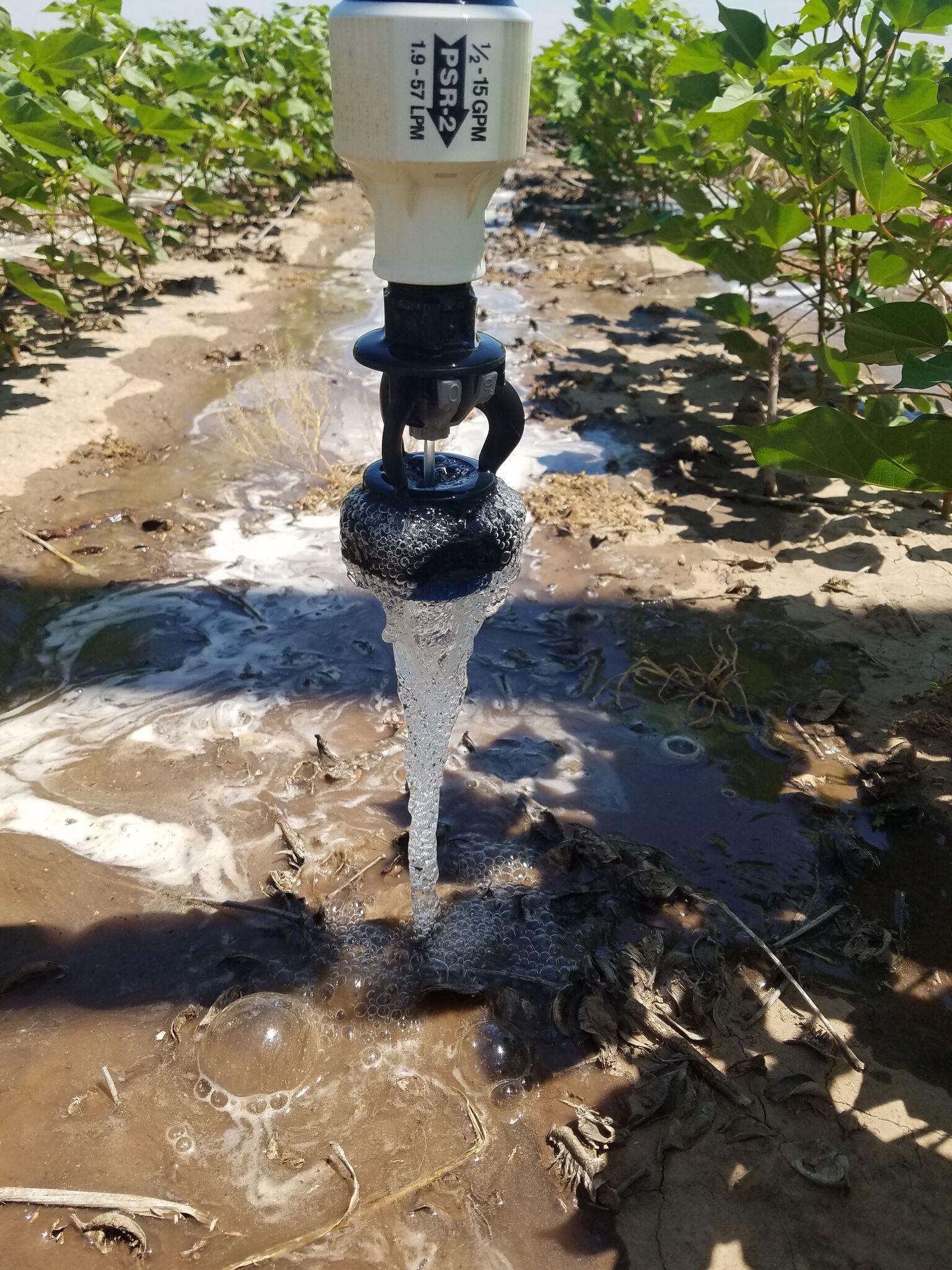
Since its formation in 2005, the Texas Alliance for Water Conservation (TAWC) has promoted water conservation through technology and best management practices in order to improve agricultural sustainability and profitability on the Texas High Plains. One way that is accomplished is through demonstration efforts on producer sites that focus on multiple species of crops and irrigation systems.
Thanks to a recent grant from the Texas Water Development Board (TWDB), the TAWC will be able to pursue a new line of research that will focus on water conservation through improvements on soil health.
The $203,054 award will promote a project led by Donna McCallister, an assistant professor in the Department of Agricultural and Applied Economics in the College of Agricultural Sciences & Natural Resources (CASNR). This project will demonstrate economically viable soil and crop management practices that conserve irrigation water, improve capture and storage of rainwater and quantify the role of cover crops, fallow fields and rotations in increasing soil health.
“We have not seen widespread adoption of cover crops in this area due to water resource constraints and potential negative economic risks,” McCallister said. “While cover crops are an excellent way of providing a wind-break for small seedling plants, they can reduce the amount of water and acreage available for the grower's primary crop. This study will focus on evaluating the water use and economic profitability of multiple species of cover crops with reduced tillage practices to help enable producers to make informed decisions on whether they should adopt these practices.”

At these demonstration sites, the TAWC uses conventional, pastureland and various conservation tillage systems to grow a wide array of monoculture, multiple-crop and forage-livestock systems while utilizing numerous methods of watering these crops, including furrow, center-pivot, precision mobile drip and subsurface drip irrigation systems. This has allowed for the growing of cotton, sorghum, corn, grass seed and other specialty crops as well as perennial grass, livestock and alfalfa.
It also has enabled the TAWC to make discoveries both in terms of products and economic analyses that have been used to educate producers on the best technologies and management strategies, and these have been communicated through demonstrations, field days, educational seminars and outreach events.
McCallister said the results of this project will help define sustainability in a region that incorporates water conservation and soil health into economic indicators.
“Through this project, we will select producer cooperators to demonstrate the effects of crop rotations and multispecies cover crops on soil moisture and soil health,” McCallister said. “We will collect their on-farm data to analyze for economic profitability and sustainability through the Fieldprint Calculator. The TAWC project is unique because our education and outreach efforts focus on conservation of the Ogallala Aquifer and on testing technologies and best management practices to help producers save water and maximize profitability using real farm data.”
Joining McCallister on this project are Chuck West, director of the CASNR Water Center and recently retired Thornton Distinguished Chair in the Department of Plant and Soil Science; Phil Johnson, chair of the Department of Agricultural and Applied Economics; and Rudolph Ritz, an associate professor in the Department of Agricultural Education and Communication.
This story was first published in Texas Tech Today. See the original article here.
